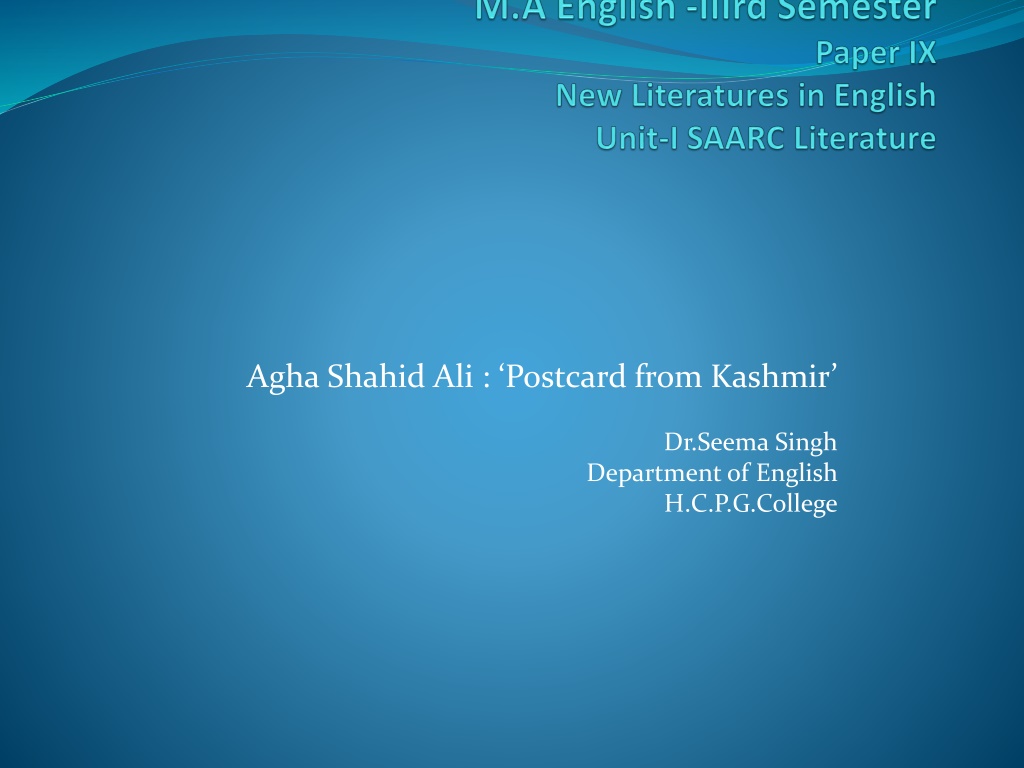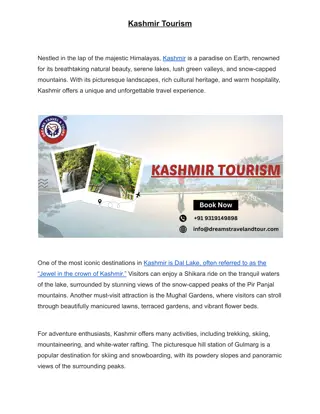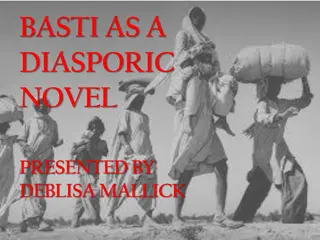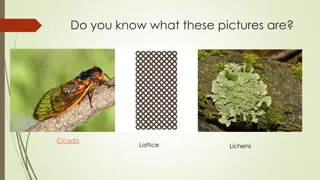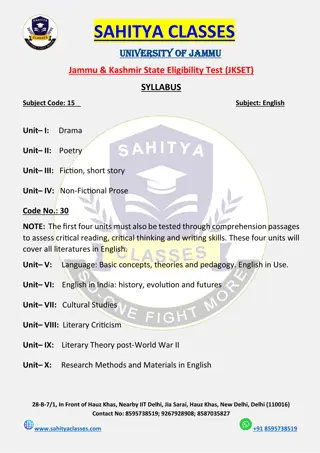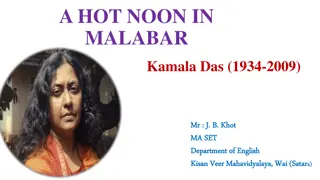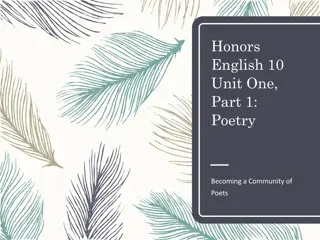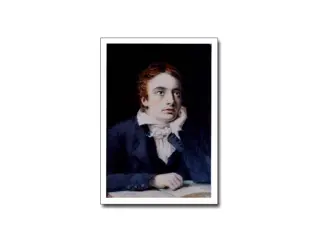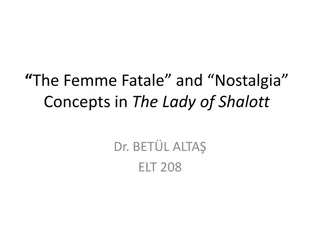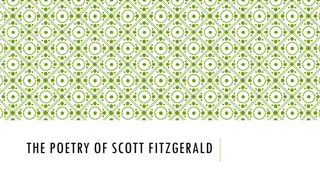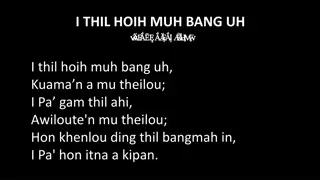Reflections on Kashmir - A Poetic Journey of Longing and Nostalgia
The poem "Postcard from Kashmir" by Agha Shahid Ali beautifully captures the emotions of longing and nostalgia for one's homeland. Through vivid imagery and poignant words, the poet reflects on the bittersweet memories of Kashmir, contrasting the idealized past with the harsh realities of the present. The postcard becomes a symbol of the distance between the poet and his homeland, highlighting the deep yearning to return and the inevitable changes that time brings. The poem explores themes of displacement, love for one's roots, and the complexities of memory in a heartfelt manner.
Download Presentation

Please find below an Image/Link to download the presentation.
The content on the website is provided AS IS for your information and personal use only. It may not be sold, licensed, or shared on other websites without obtaining consent from the author. Download presentation by click this link. If you encounter any issues during the download, it is possible that the publisher has removed the file from their server.
E N D
Presentation Transcript
Agha Shahid Ali : Postcard from Kashmir Dr.Seema Singh Department of English H.C.P.G.College
Kashmir shrinks into my mailbox, my home a neat four by six inches. I always loved neatness. Now I hold the half-inch Himalayas in my hand. This is home. And this the closest I'll ever be to home. When I return, the colors won't be so brilliant, the Jhelum's waters so clean, so ultramarine. My love so overexposed. And my memory will be a little out of focus, it in a giant negative, black and white, still undeveloped.
This poem is about how memories and pictures cannot compensate for actually being in your homeland. The reference to a postcard shows that his understanding of his homeland has become shallow and incomplete. Memories of one's homeland are clouded by nostalgia, Ali remembers only the good, when the reality of Kashmir was more accurately violent. He has a very strong love for his motherland which has been left due to terrorism caused by the neighbor. From the very beginning the poem shows its strong emotions.
Kashmir shrinks into my mailbox, my home a neat four by six inches. I always loved neatness. Now I hold the half-inch Himalayas in my hand. The word Shrinks in Kashmir shrinks into my mailbox (line 1) suggests that the real, grandeur of Kashmir diminishes to the tiny delicate picture printed on the postcard. My home indicates his motherland, refers to a place where people are currently living in. The poet receives a postcard from his home, Kashmir. Apparently, the speaker has lost touch with his homeland. The four-by-six-inch postcard simply evokes his memories towards his birthplace. The poet highlights that he always loved neatness. The adjective neat refers not only to the regular shape of the postcard but also the neat and harmonious Kashmir in the poet s memory. The moment when the poet receives the postcard the role of nostalgia started in his mind. He imagines that he is getting the air and vision of Himalayas. The speaker then switches his focus to the mere half-inch Himalayas, which is, in reality, the most gigantic and iconic mountain range in the world. The opening stanza is a fine example of the use of nostalgia which never needs elaborative descriptions.
This is home. And this the closest I'll ever be to home. When I return, the colors won't be so brilliant, the Jhelum's waters so clean, so ultramarine. My love so overexposed. The poet admits that he is in dilemma, he is like a nowhere man. Living away from his motherland he is not able to forget it. He is not sure that he shall ever return to his home. And if he return he will not get the colors and pictures of past. The word closest serves as an irony. The poet yearns to be home but the chance to do so is thin. The poem reveals that Pseudo war-torn Kashmir is no longer as calm and peaceful as it used to be . It has lost its beauty and peace. The poet deliberately uses the same kind of contrast to express the wide distance between Kashmir and where the speaker is. His emotion reaches the climax at my love so overexposed (line 9-10). The poet intentionally separates so overexposed from my love in order to achieve a rhetorical emphasis on his patriotic sentiment.
And my memory will be a little out of focus, it in a giant negative, black and white, still undeveloped. When the poet thinks he gets that he has a memory which is giant and negative : the two adjectives help contrast the shrunken, idealized Kashmir in the postcard with the giant, grim one in reality. Black and white : a metonymy for things happened in the past. It contrasts the stark colour on the postcard. The last sentence of the poem is filled with quite a number of commas. This structure reflects that memories are just pieces of flashbacks and feelings that tangle together. However enchanting his memories are, they are indeed messy and will gradually fade.
The Poem has three stanzas, the first and third stanzas has four lines while the second has six. The poem has been written in free-verse. The poet experiences a kind of peaceful, but painful recognition that Kashmir is no longer his home. He attempt to deal with the fact that he doesn't remember on it, something he seems to believe is akin to cheating on a lover.
